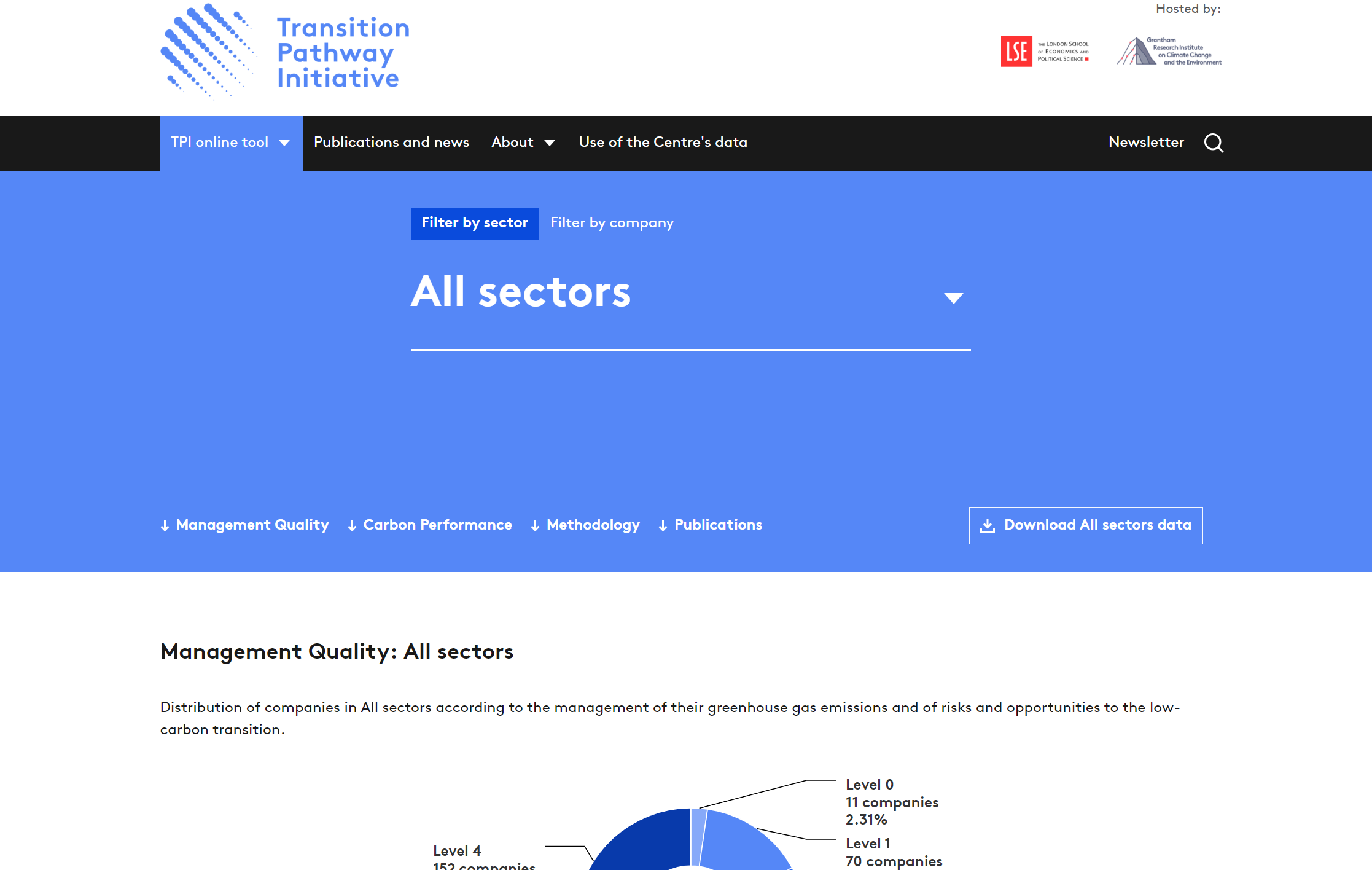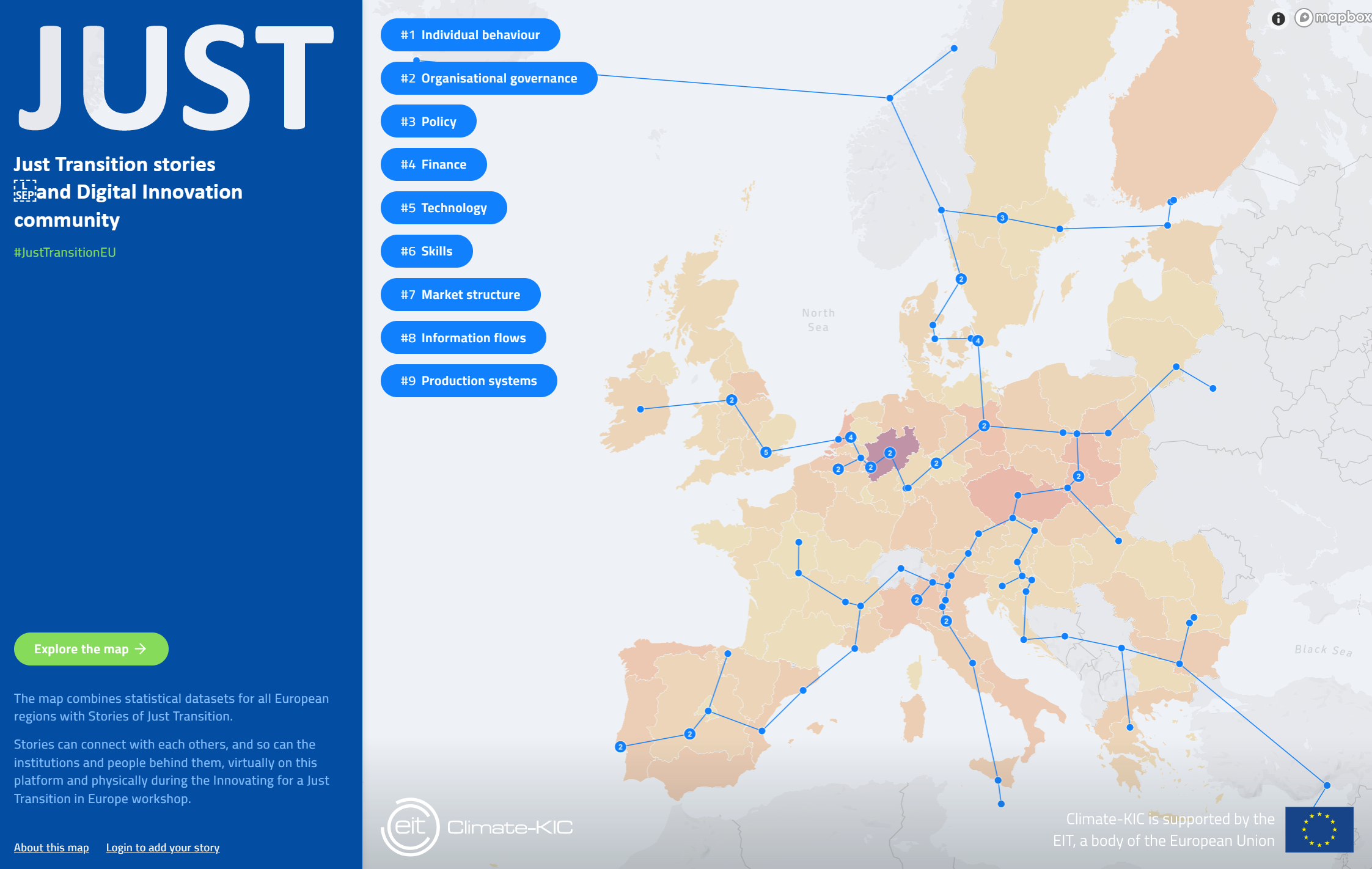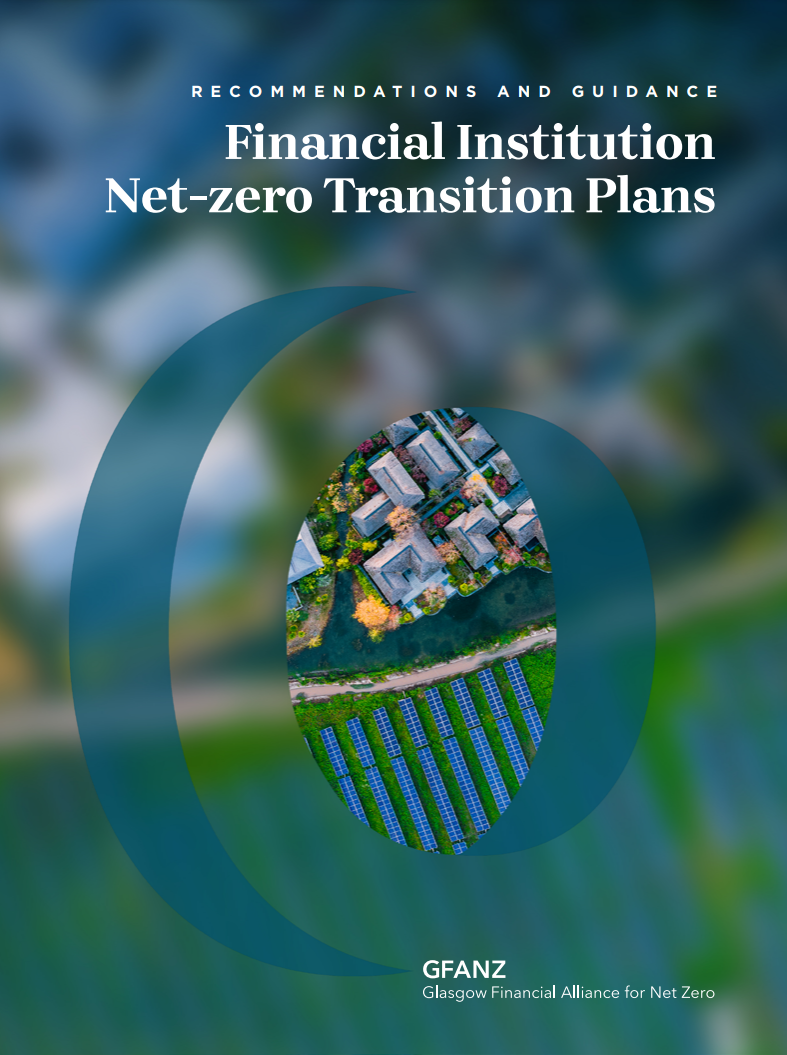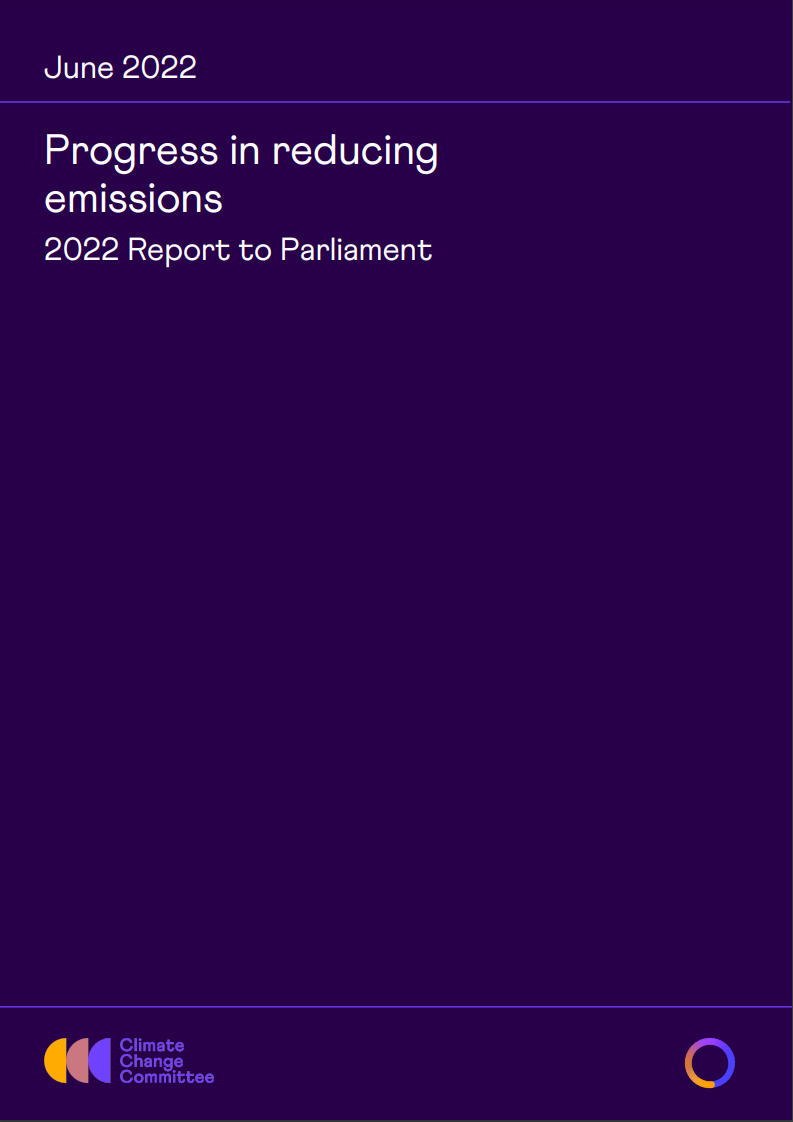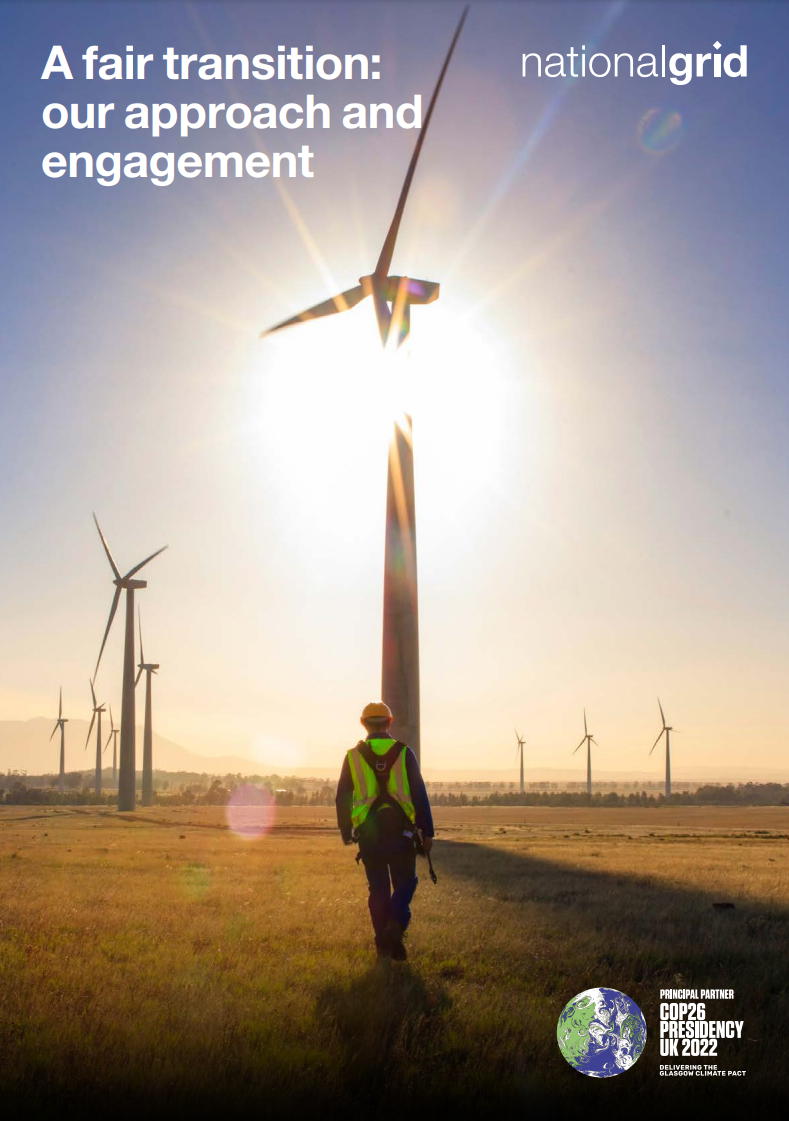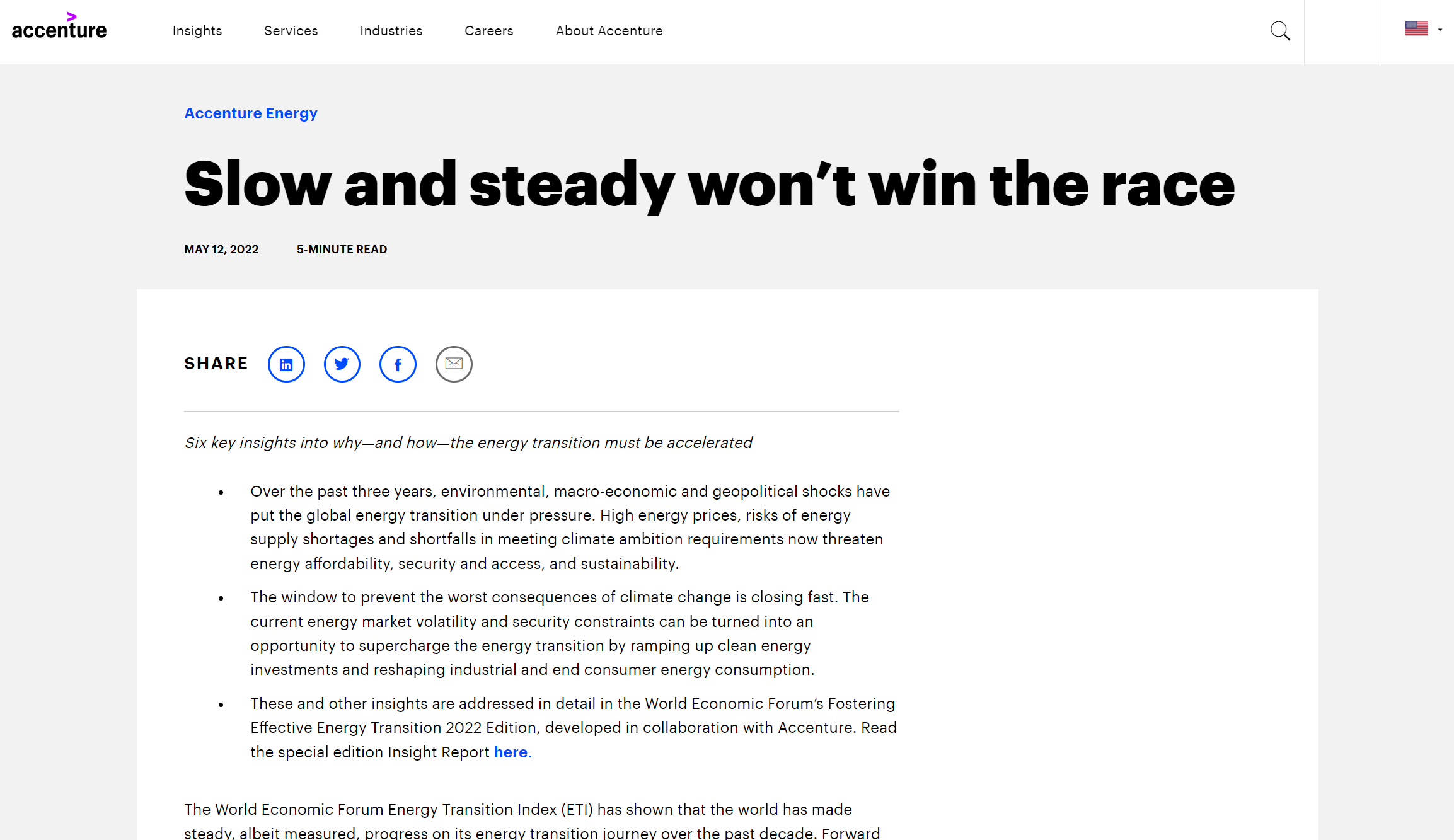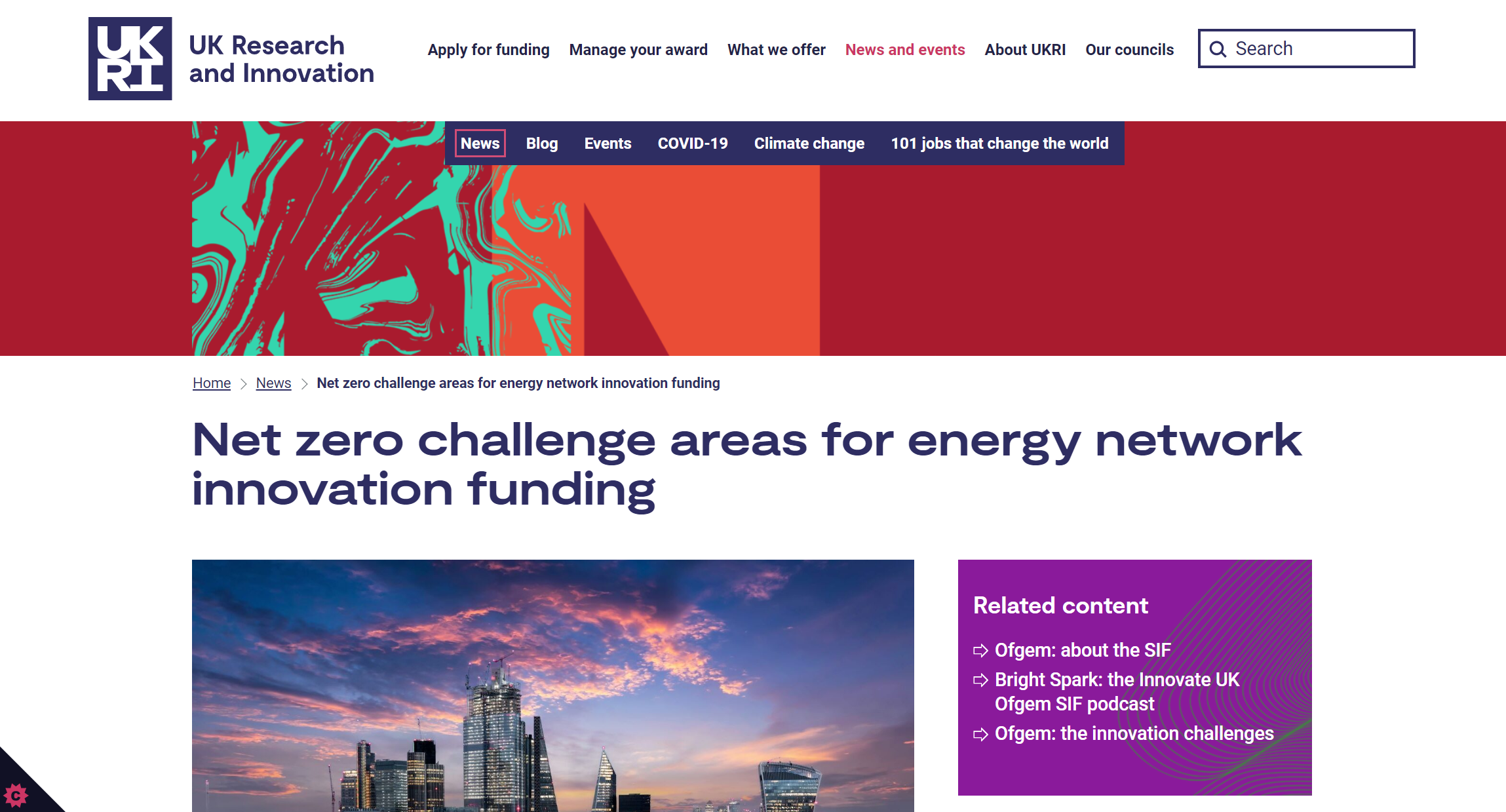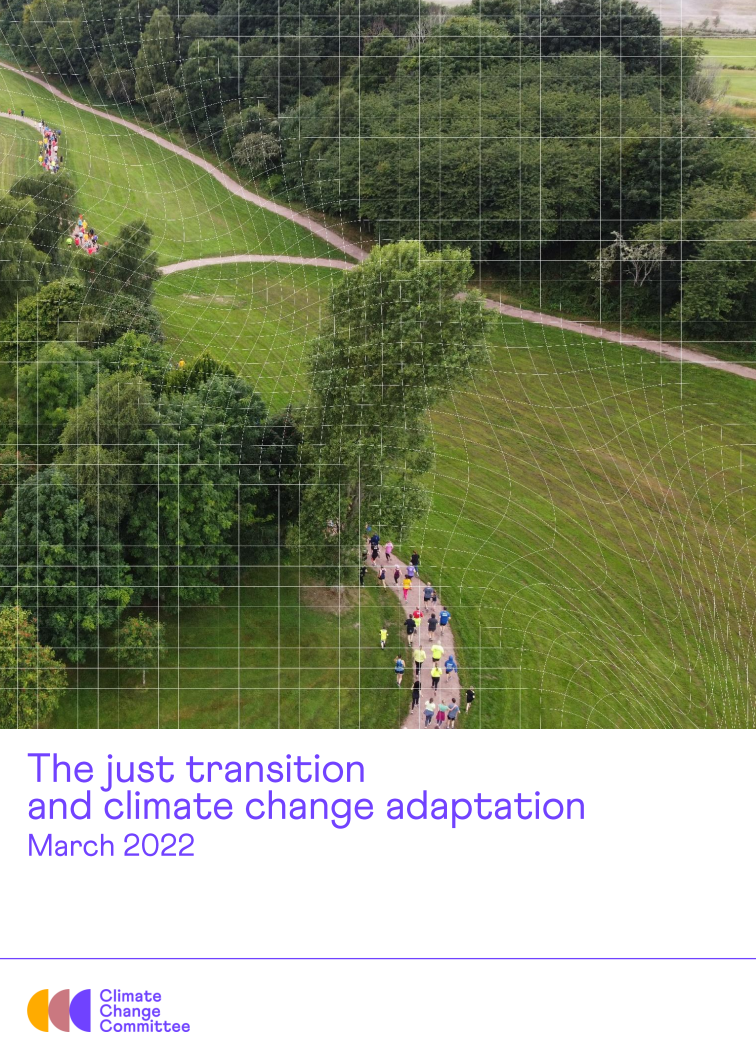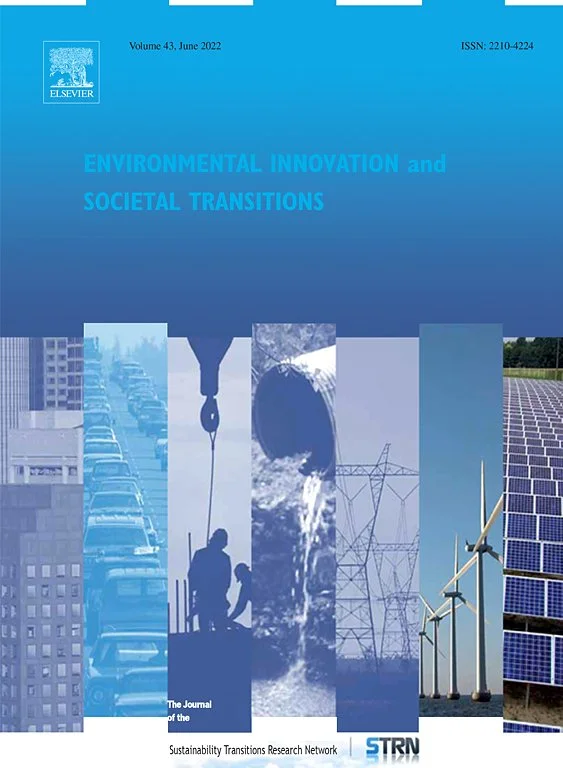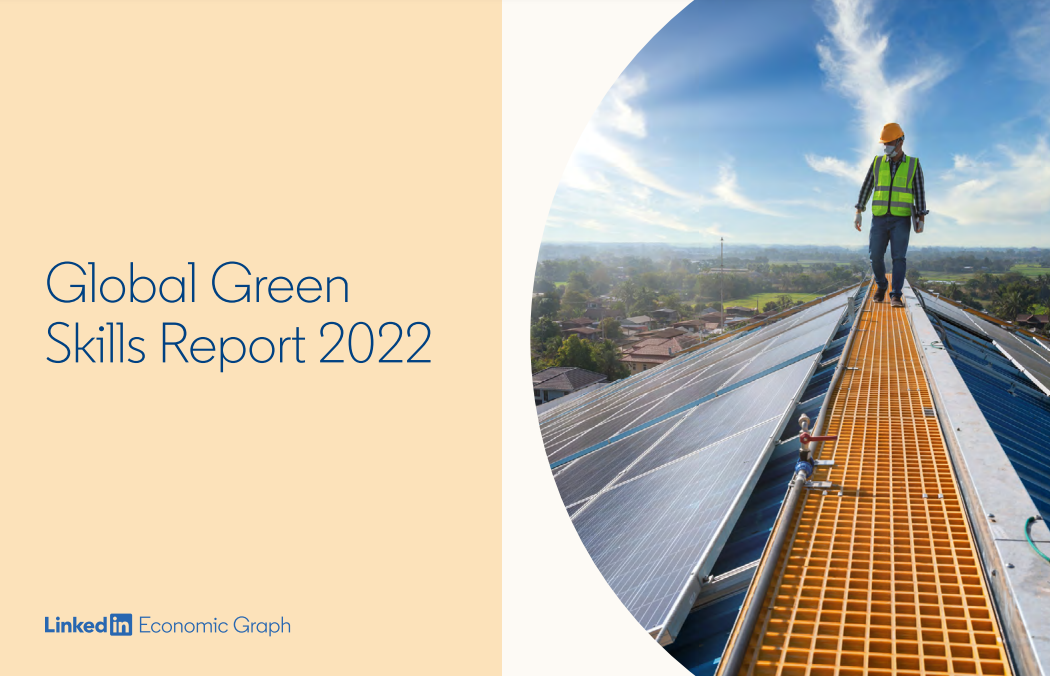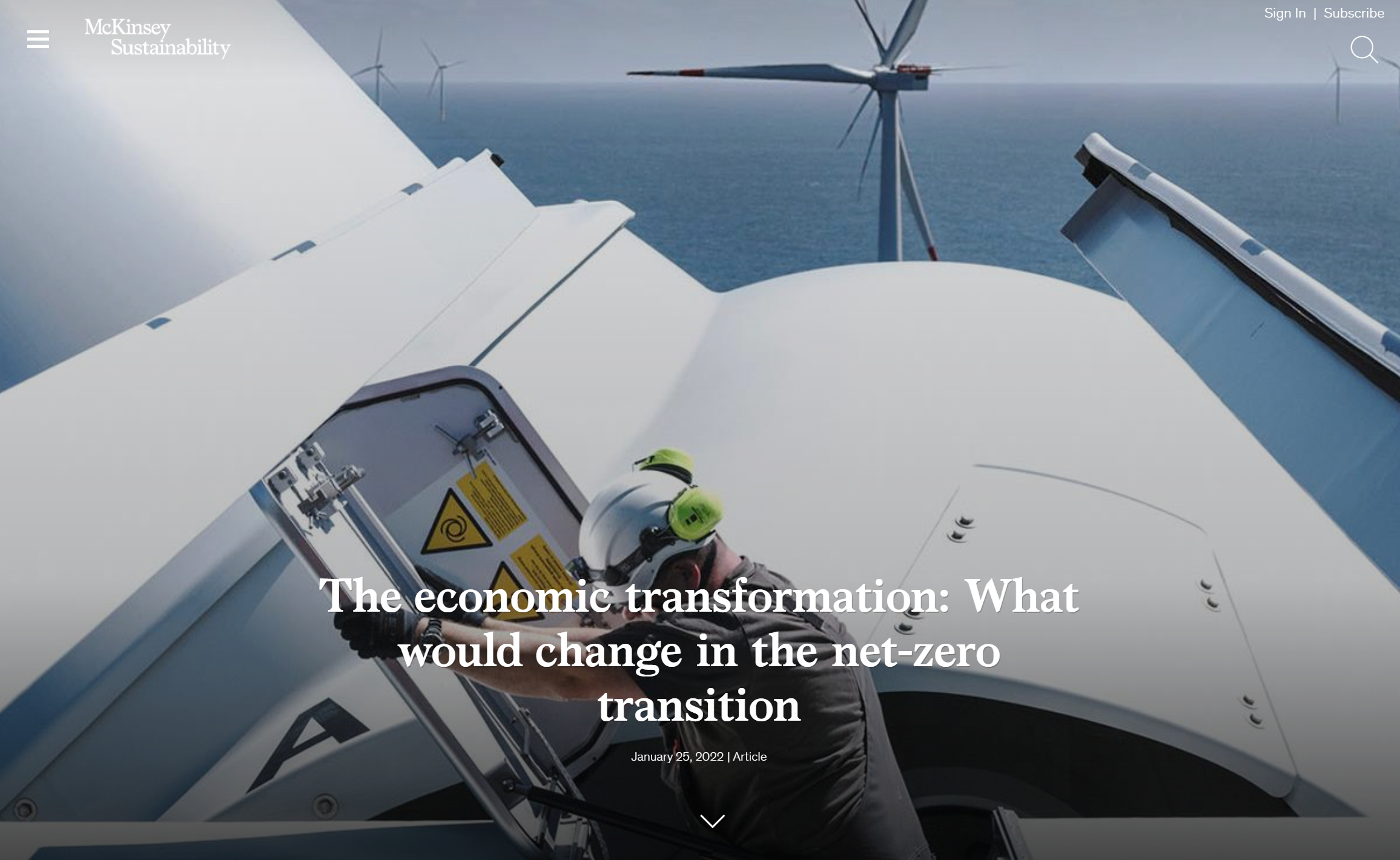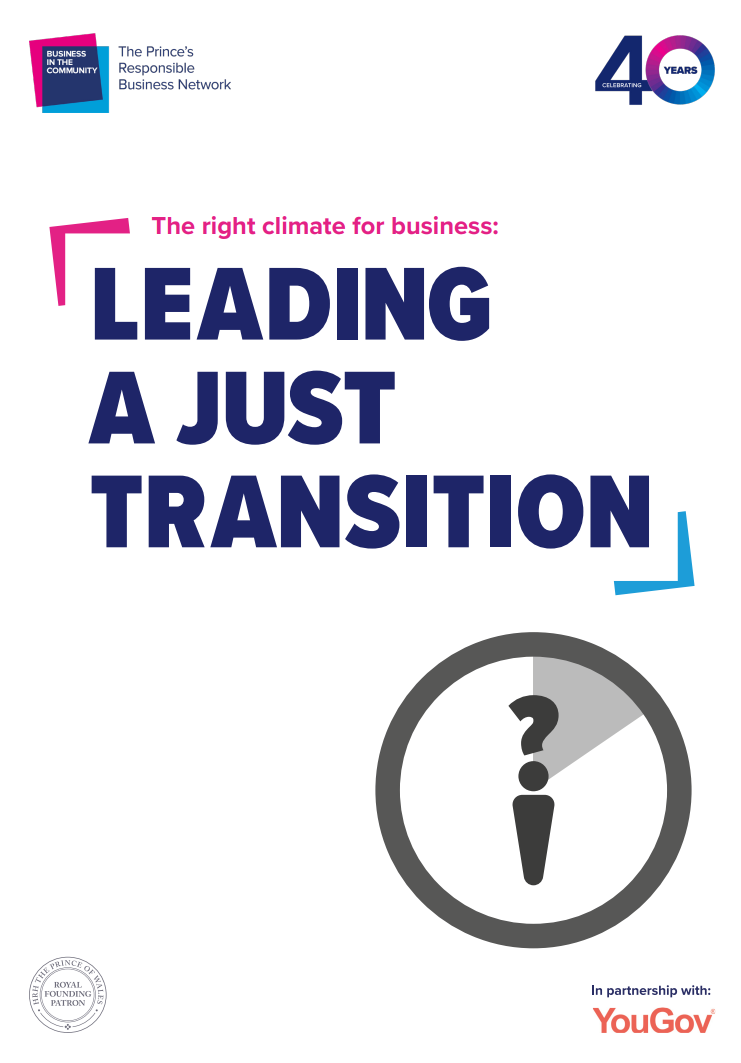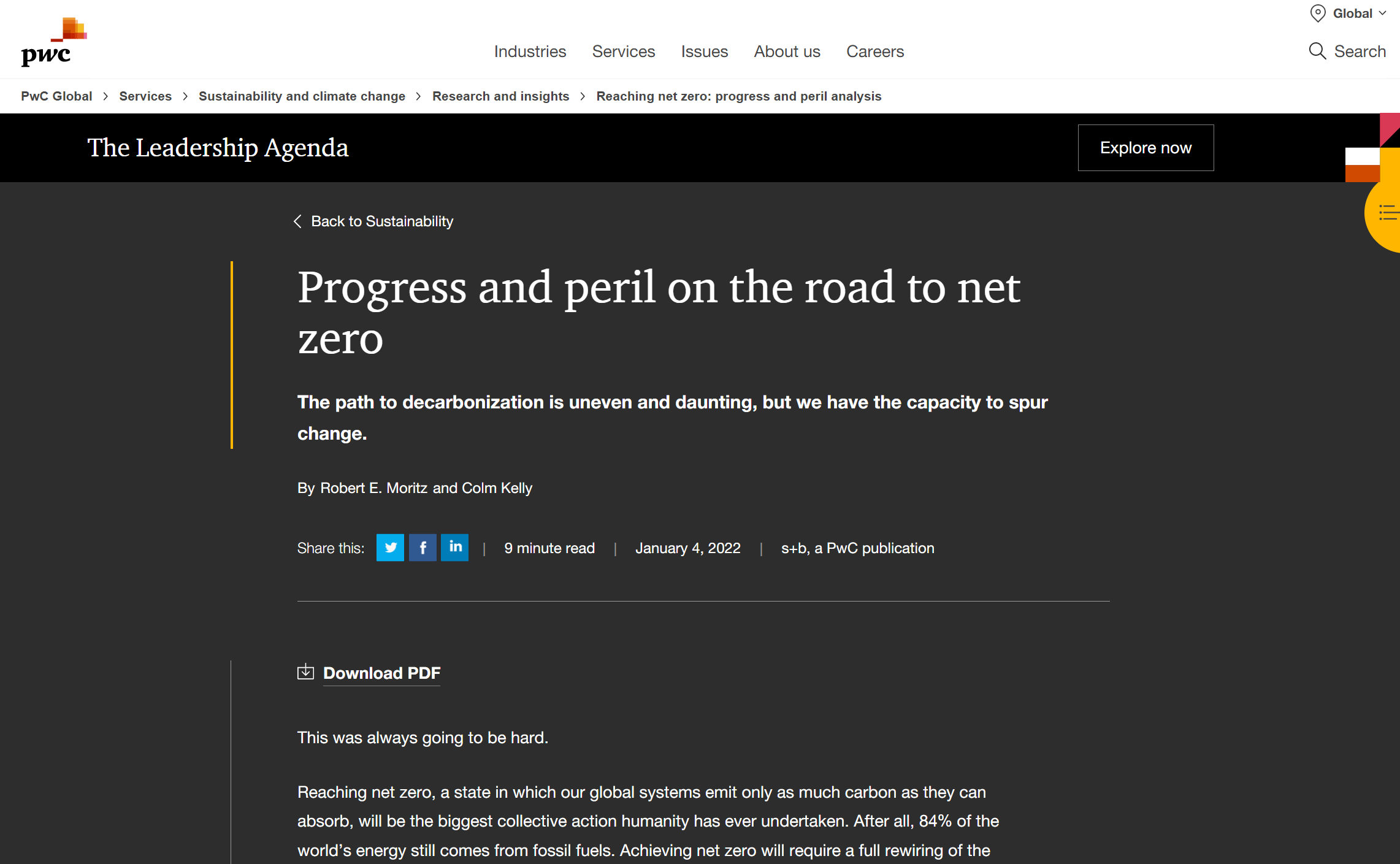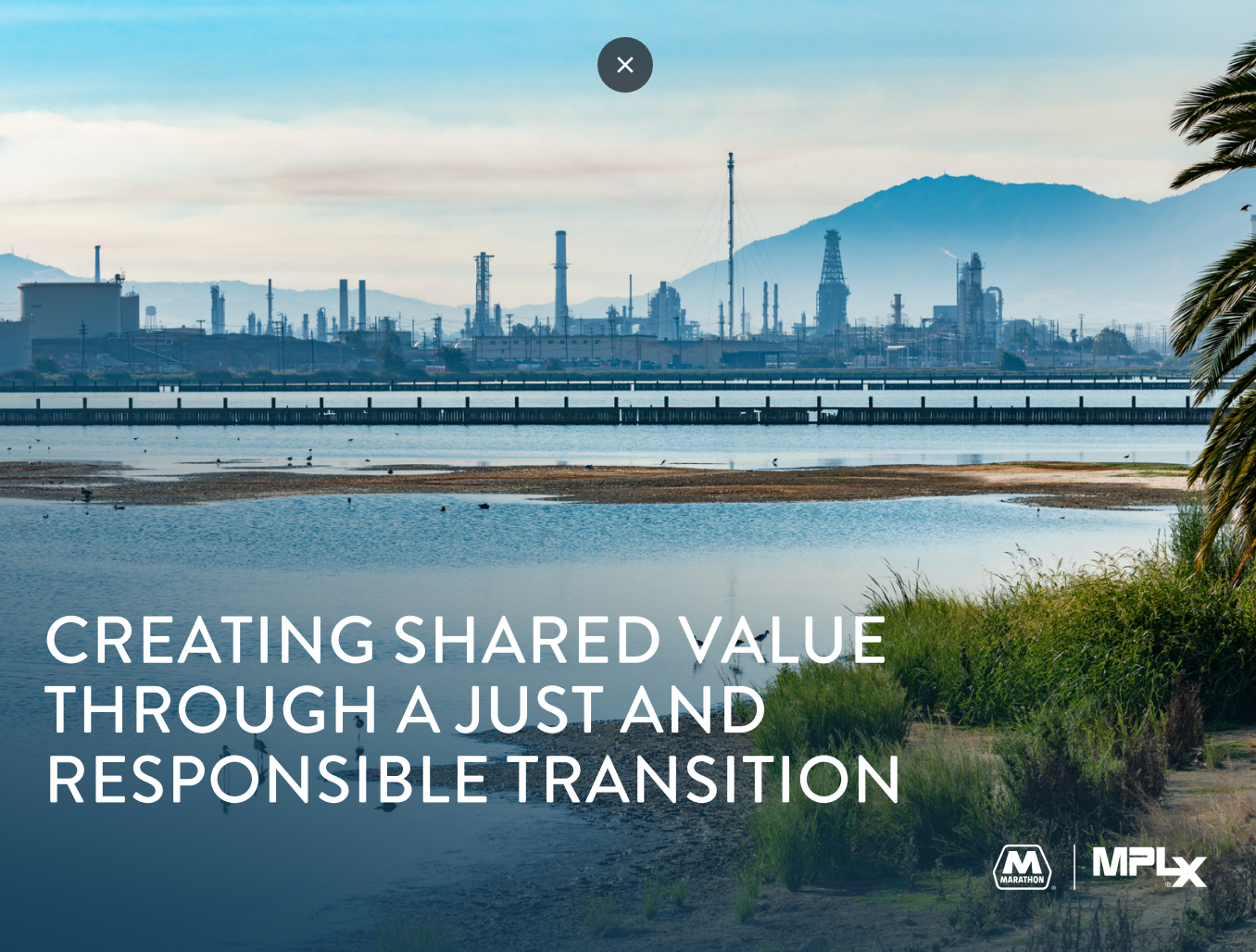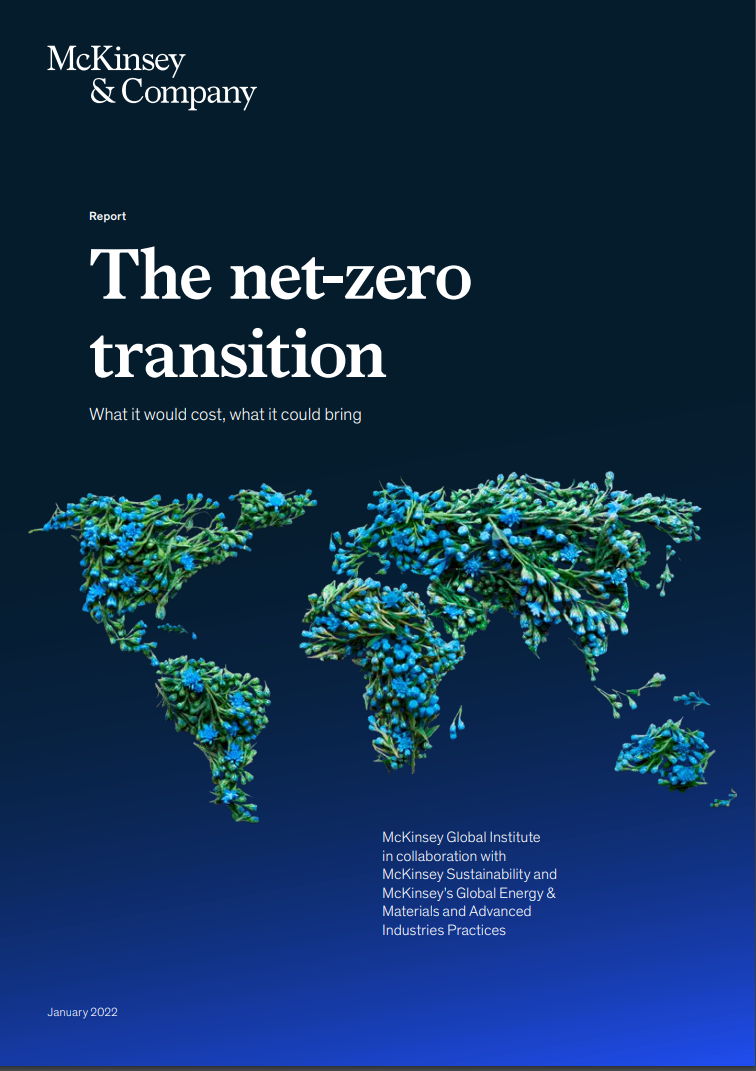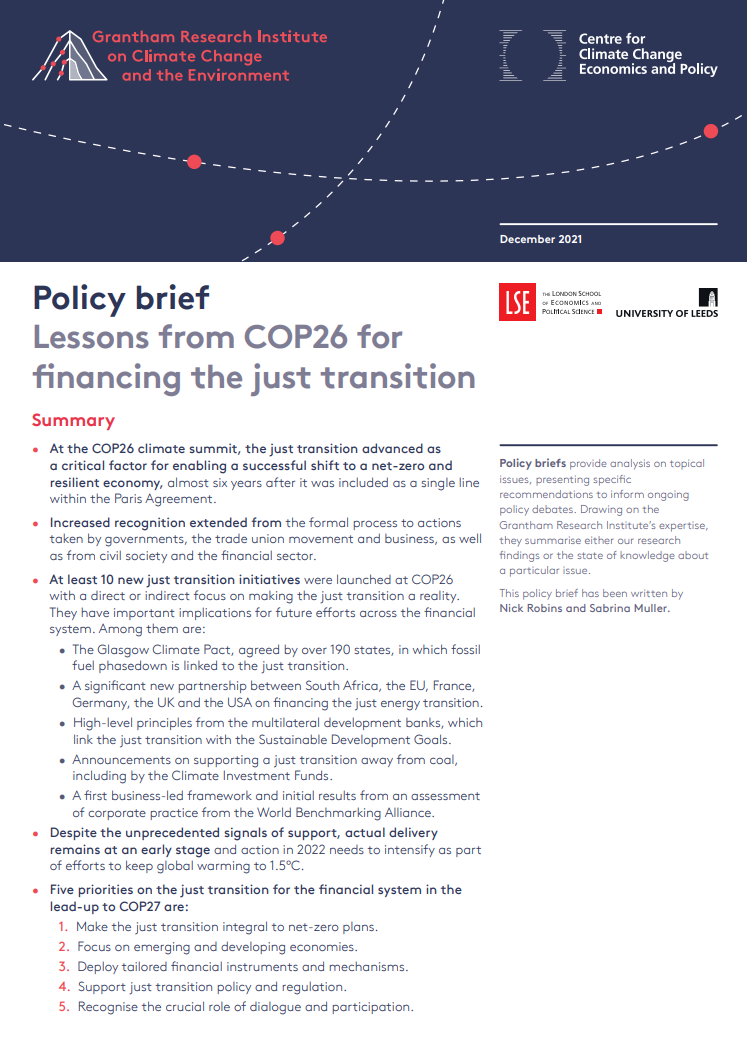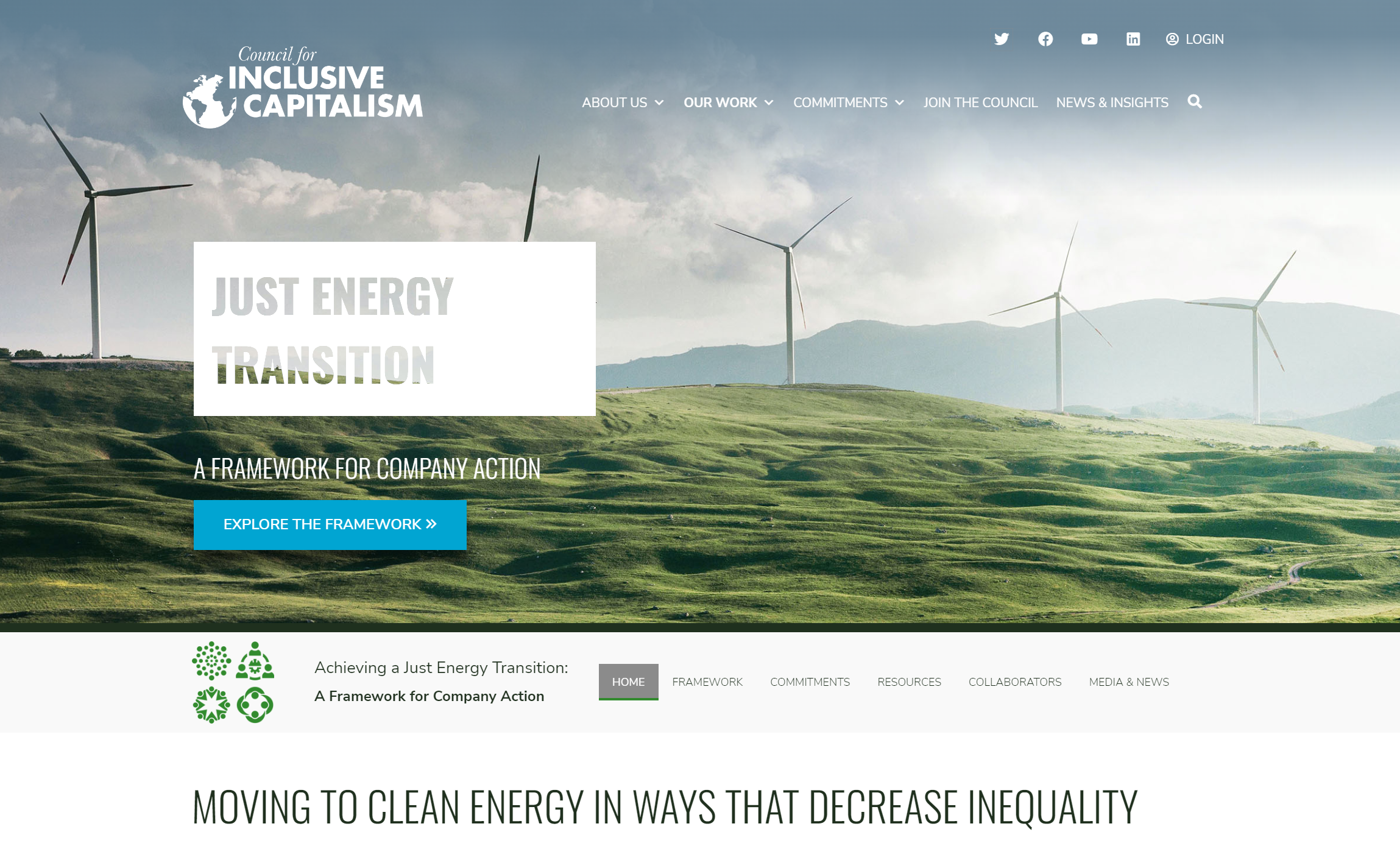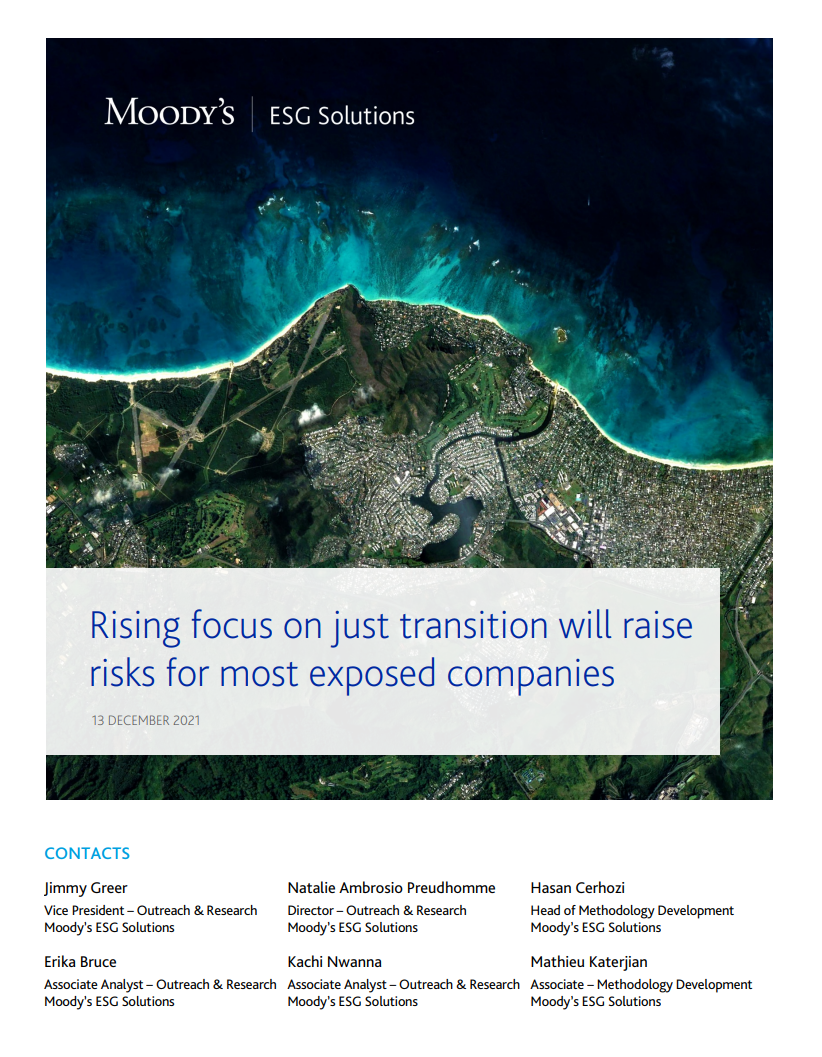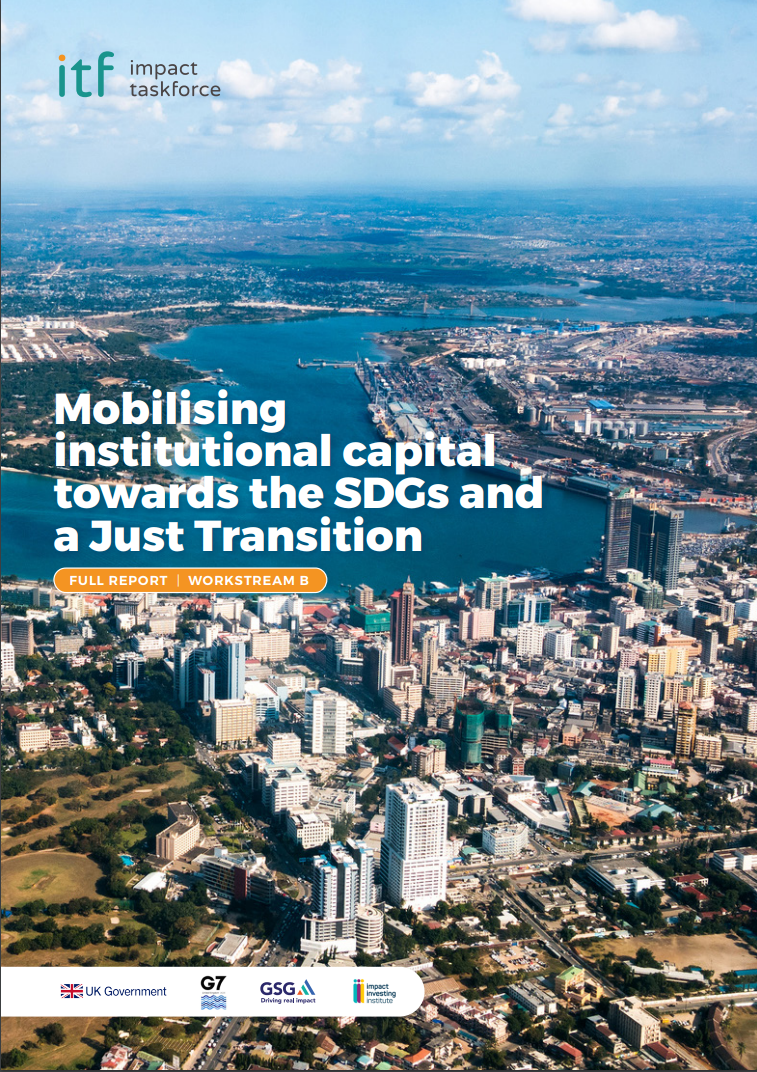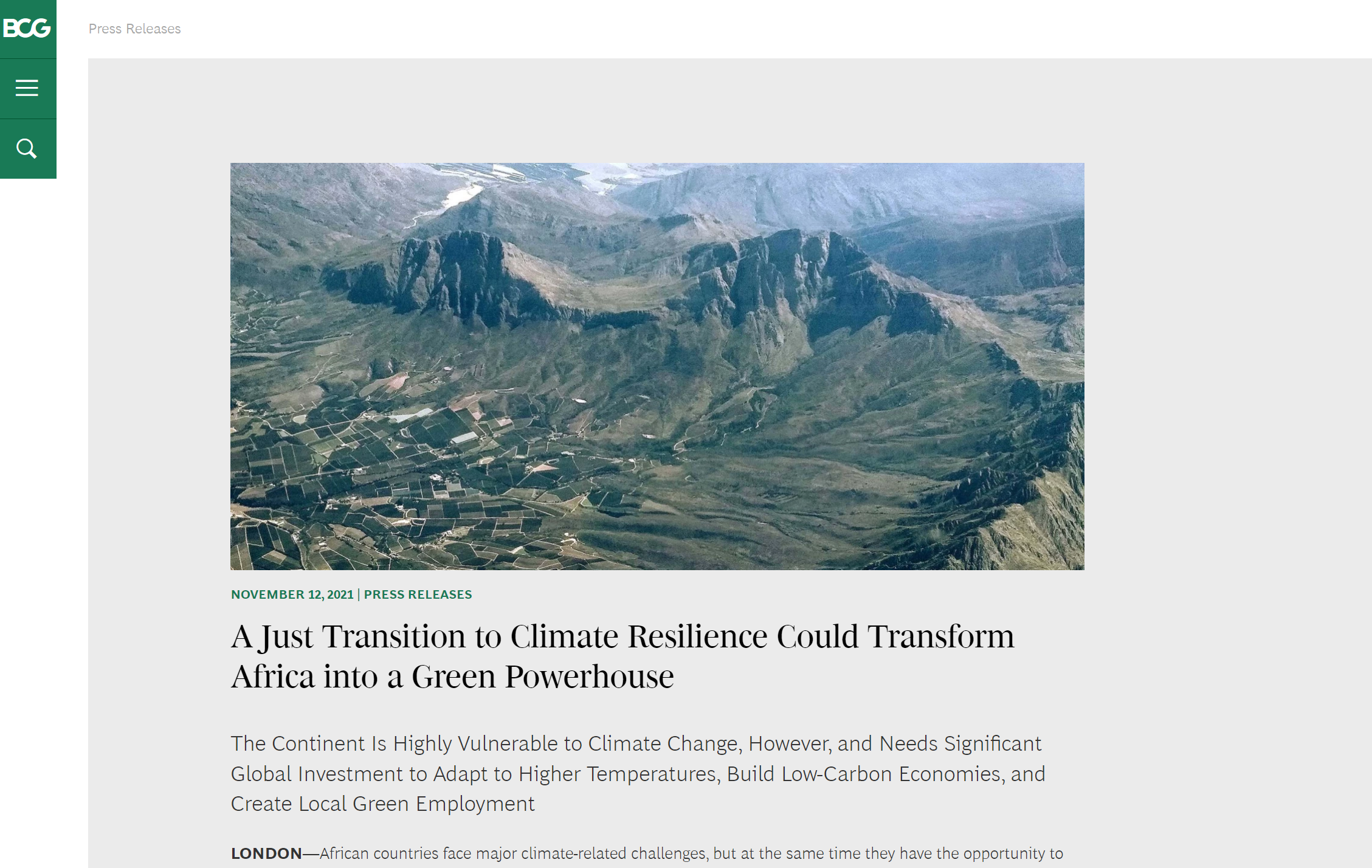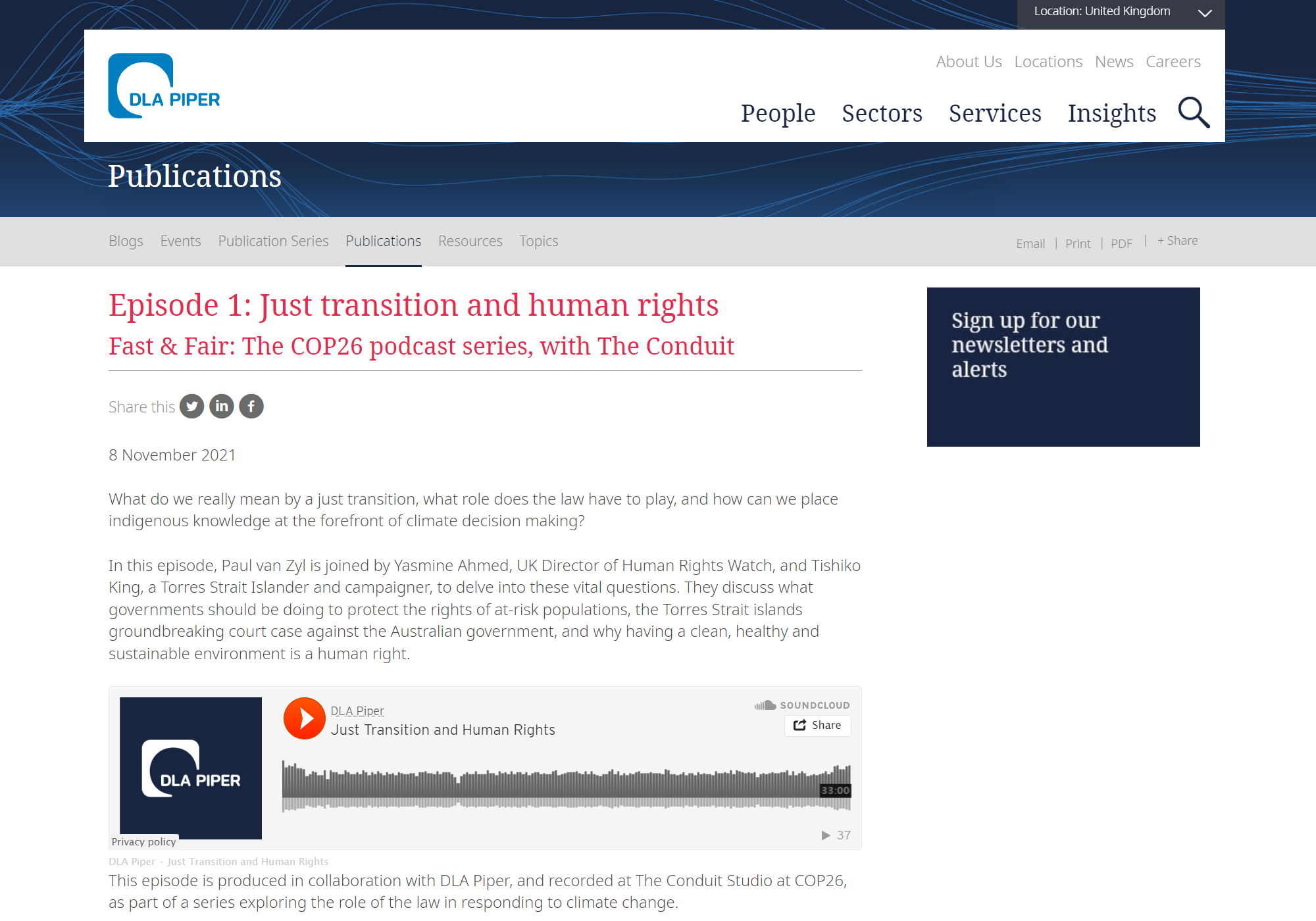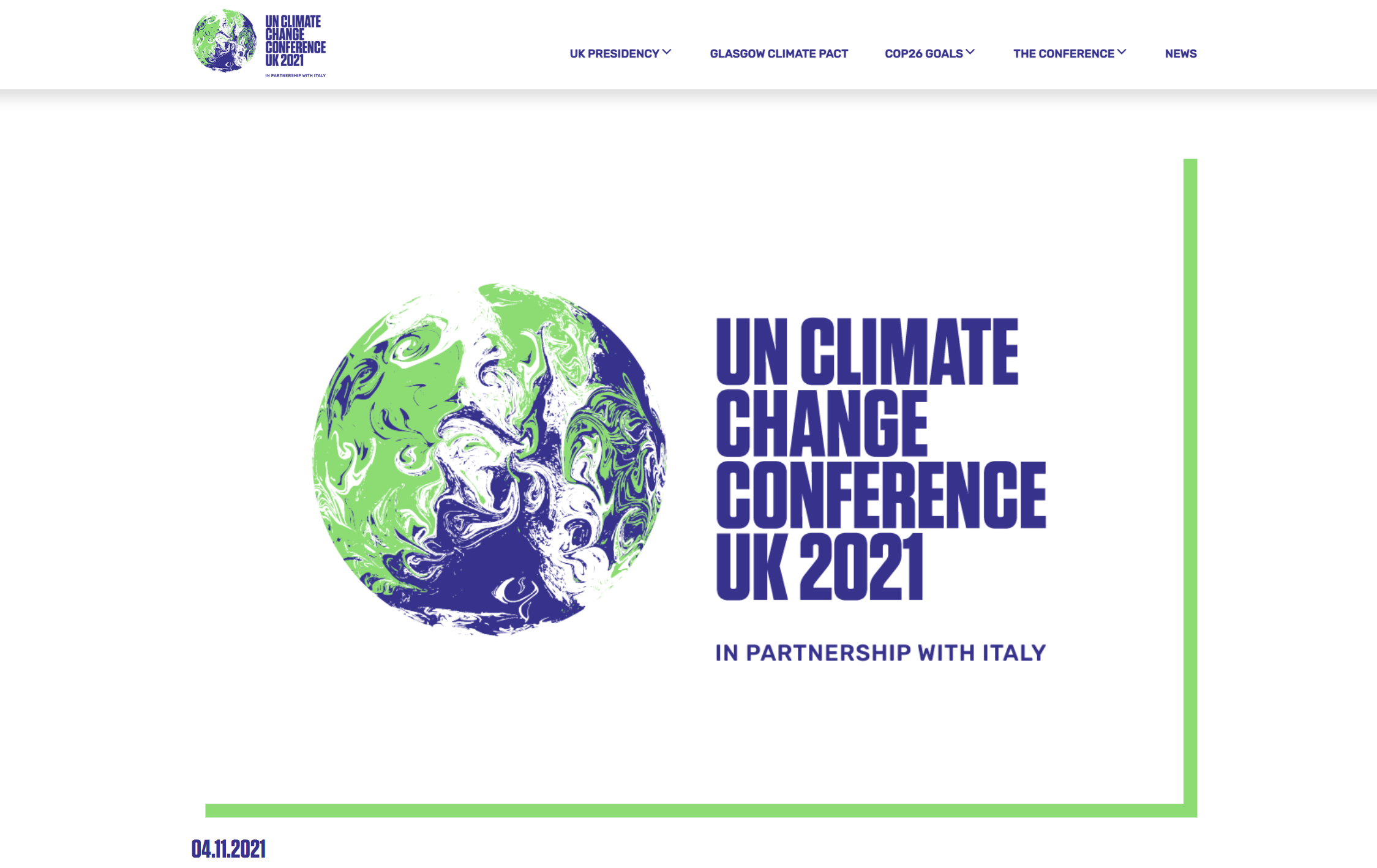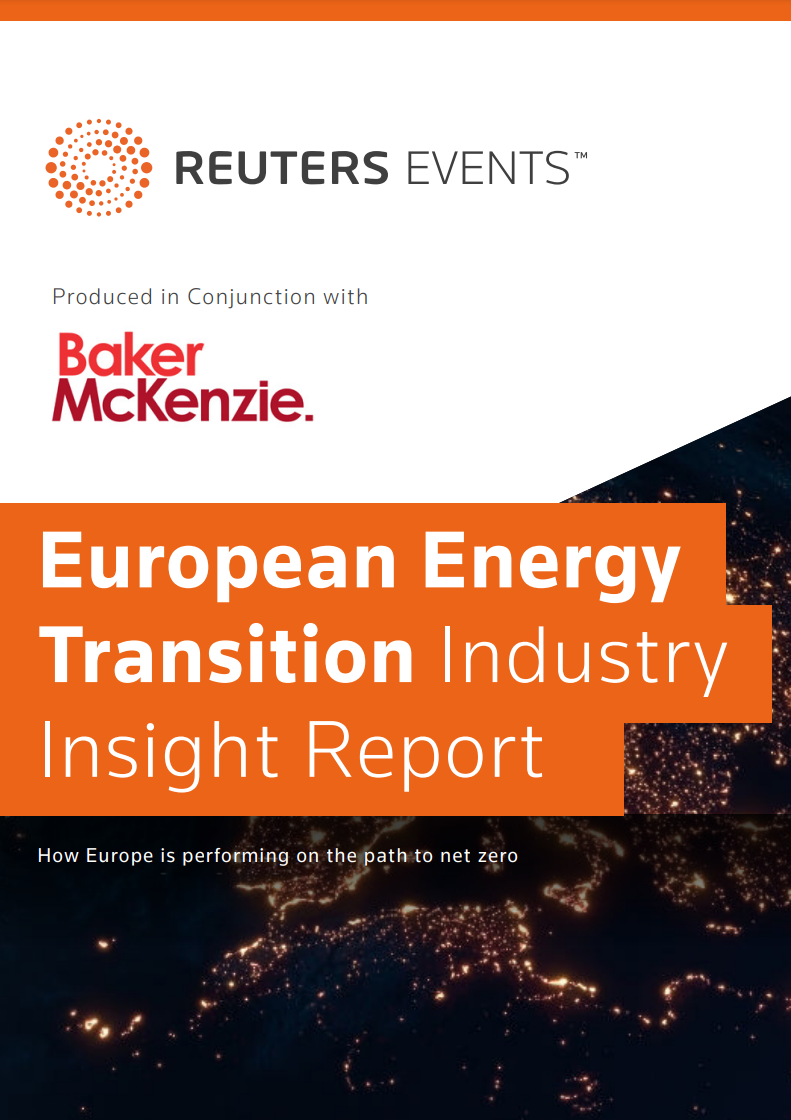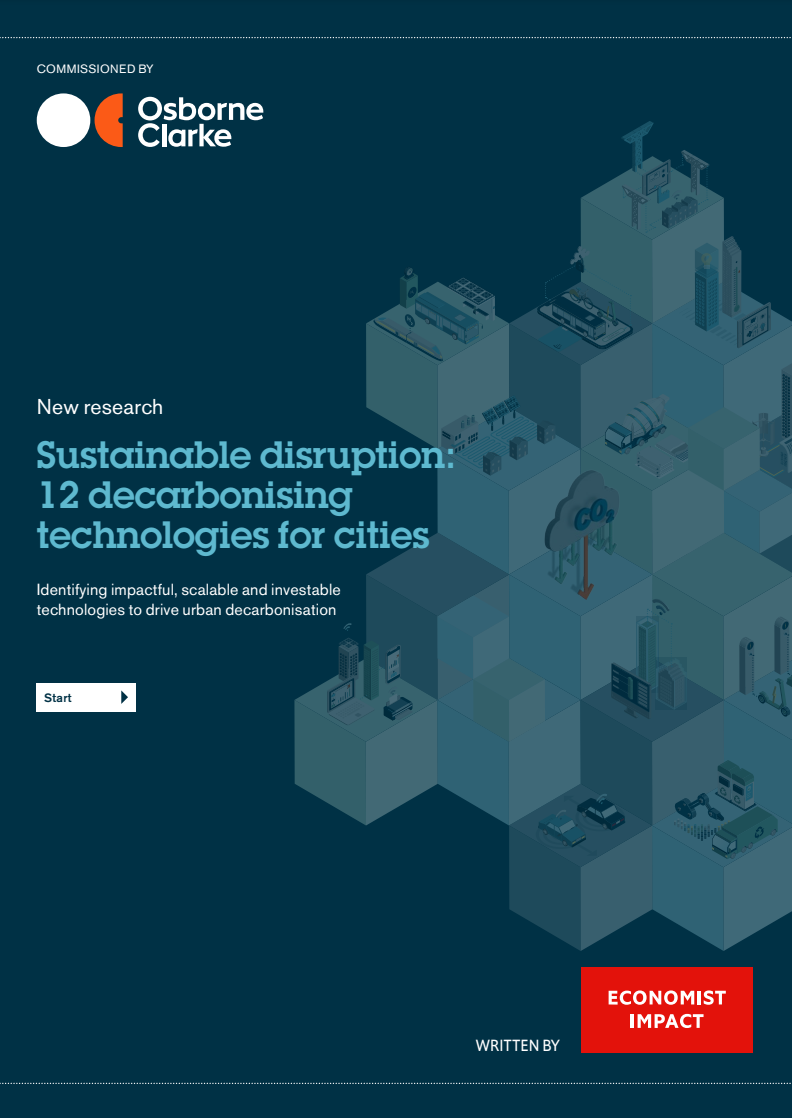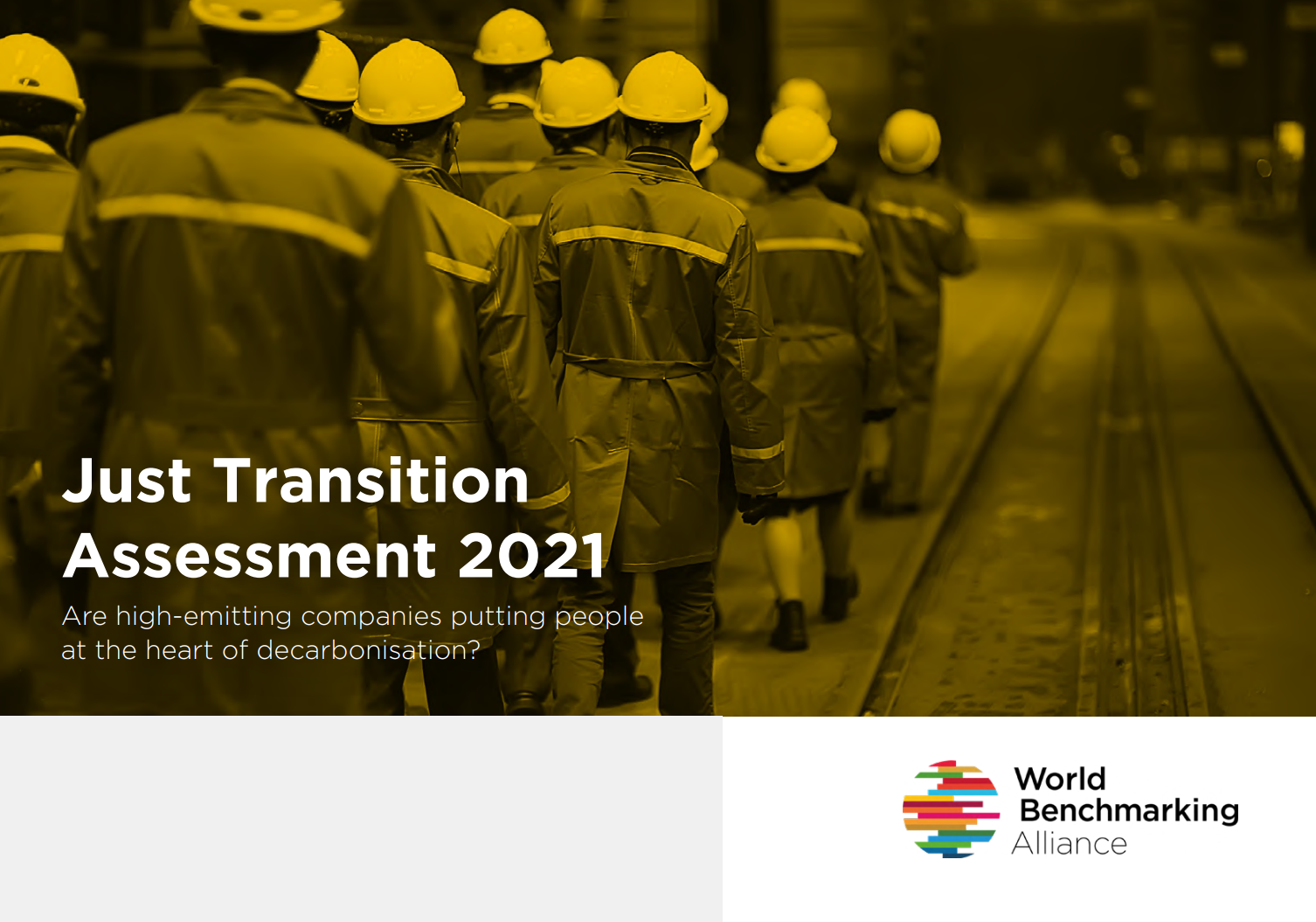Just Energy Transition
How can we shift from a carbon-based economy in a responsible way
THE JUST ENERGY TRANSITION - LIBRARY
We’ve collated key publications on a Just Energy Transition in one place, filterable by publication type.
Have we missed something? Let us know by completing this form.
FILTER: All | Articles | Frameworks | Guidance | Initiatives / Funding | Legislation | Reports | Standards | Tools | Webinar
>> Select a filter item above
Author(s): EIT Climate-KIC
Description: The map combines statistical datasets for all European regions with Stories of Just Transition. Stories can connect with each others, and so can the institutions and people behind them, virtually on this platform and physically during the Innovating for a Just Transition in Europe workshop.
Author(s): Glasgow Financial Alliance for Net Zero (GFANZ)
Description: This report introduces GFANZ’s proposed recommendations and guidance to deliver a global framework for ambitious and credible net-zero transition plans for financial institutions across the financial sector.
Author(s): Climate Change Committee
Description: This is the CCC's 2022 progress update to Parliament. Chapter 14 covers cross-cutting issues, many of which surround the 'just' element of transition. These include public engagement and choices, fair funding and affordability, workers and skills, and adaptation.
Author(s): National grid
Description: Sets out National Grid's strategy for a fair transition, including a five pillar framework covering actions on Affordability, Education, jobs and skills, Community, Nature and Resilience and Accessibility. Also includes useful insight on public perspectives on JET.
Author(s): Accenture
Description: This article highlights the urgency for transformative interventions to mitigate climate change in the face of the COVID-19 pandemic and the war in Ukraine. It shares insights from Accenture and the World Economic Forum's Fostering Effective Energy Transition Insight Report (May 2022) on how companies can navigate their tranisiton journey in times of crisis.
Author(s): Ofgem, Innovate UK
Description: Office of Gas and Electricity Markets (Ofgem) and Innovate UK have announced the challenge areas for the second round of innovation funding under the Strategic Innovation Fund (SIF). It opens for applications in early September 2022.
Author(s): Scottish Widows
Description: This report examines how job creation, productivity enhancements, and reducing inequality are all possible in the transition to a low carbon economy. But without considering the challenges and risk to communities, workers and people, these opportunities may never be realised. It advocates for a ‘just transition’ that is as fair and inclusive as possible as the world decarbonises.
Author(s): Climate Change Committee, Scottish Government
Description: This report considers how adaptation to a changing climate links to the broader concept of a ‘just transition’ and how the distrubutional consequences of both climate impacts and adaptation actions can be addressed as part of policy making.
Author(s): University of Strathclyde, University of Edinburgh
Description: A ‘Just Transition’ seeks to protect the rights of the workforce throughout transition away from high carbon industries and towards sustainable economic sectors. This includes reskilling where appropriate and a fair distribution of benefits, alongside recognition and participation of affected communities. Drawing on a systematic literature review and a case study delineated by the 38 English Local Enterprise Partnerships we analyse the variety of skills required to support a just transition to more decentralised and smart low carbon energy systems (defined as ‘smart local energy systems’) in England. We found that more attention is required in assessing skills provision, alongside upskilling the workforce, or risk the transition being unjust. Regional disparities in skills availability could be mitigated through a local skills provision system whereby stakeholders can review training opportunities, identify emergent skill-gaps and leverage investment. In addition, greater devolution to local authorities would enable them to support stakeholders more effectively.
Author(s): LinkedIn Economic Graph
Description: This report provides new data on green skills and jobs from all across the world, to empower policymakers, governments and business leaders with actionable insights to help them transition the global workforce to a green economy future. It also analyses differences in the green transition for each country and sector.
Author(s): Deloitte, Reuters Events
Description: The report outlines the biggest challenges and opportunities facing industry leaders as they plan and execute their decarbonisation strategies.
Author(s): McKinsey
Description: This article details the shift in demand, capital allocation, costs and jobs that would be brought about by a successful net-zero transition.
Author(s): BITC
Description: This report shares key research insights and recommendations to deliver a fair and inclusive transition to a net-zero, resilient future where people and nature thrive.
Author(s): PWC
Description: This article outlines four interconnected areas that need to be developed to create a flywheel that can energize the world’s transition to a net-zero future, namely innovation and product development, fucntioning markets, government policies and regulations and maintaining political and public will.
Author(s): Marathon Petroleum
Description: This report details Marathon Petroleum's approach to addressing potential social impacts in the context of the energy transition across stakeholder engagement, human capital management, community involvement and investment. The report specifically addresses alignment withthe ILO’s Guidelines for a Just Transition and discusses the dedicated forums within the company that help facilitate internal and external engagement on topics including climate risk and the potential social impacts of the global energy transition.
Author(s): McKinsey
Description: This report examines the economic transformation that a transition to net-zero emissions would entail. It provides estimates for the changes up until 2050 in demand, capital spending, costs, and jobs, for sectors that produce about 85 percent of overall emissions and assess economic shifts for 69 countries.
Author(s): LSE GRI
Description: This policy brief reviews the importance of a just transition of the workforce and the creation of decent work and quality jobs. The brief also assesses 10 new initiatives and makes five detailed priority proposals for financing the just transition in 2022.
Author(s): The Council for Inclusive Capitalism, BP, BCG
Description: The Council, along with BP and BCG, have brought together seven international, energy-intensive companies and investors with academic, civil, and social representatives to develop a hub of resources (best practices, case studies, and research) to support company action. The framework for a just energy transition provides concrete guidance that companies of all industries can use to lead a swift energy transition that benefits all involved.
Author(s): Moody's
Description: Our latest report exploring just transition readiness found that the most-exposed companies globally are generally under-prepared for the coming disruption to workforces, supply chains, communities and consumers caused by the transition to net zero. We assessed approximately 1,000 companies in eleven sectors identified as most exposed to carbon transition, across seven just transition-relevant criteria. In the report we also use our physical risk datasets to explore how high-emitting sectors are also significantly exposed to physical climate hazards, for example, heat and water stress, with implications for the health of workers and costs for communities. We expect that companies that fail to demonstrate how they will implement policies and programmes to manage the social consequences of the transition to a low-carbon economy are likely to face greater scrutiny from investors, policymakers and consumers, raising potential market, reputational and legal risks.
Author(s): Clifford Chance LLP, CDC Group, IHRB
Description: This paper considers how banks are addressing and can support a just transition through their climate-related financing activities, and the challenges and opportunities this presents.
Author(s): Impact Investing Institute
Description: The report provides concrete and actionable recommendations for G7 policy makers, other national policy makers and regulators, institutional asset owners, multilateral development banks and development finance institutions, asset managers, impact investors, advisors and ecosystem builders. The report also includes a full set of examples and case studies across asset classes that demonstrate how existing and future vehicles can pursue bold environmental and social impact while being attractive to institutional investors.
Author(s): BCG
Description: This article highlights the extent to which African countries are vulnerable to climate change and need global investment to adapt to higher temperatures, build low-carbon economies and create local green employment.
Author(s): DLA Piper & The Conduit
Description: Podcast: What do we really mean by a just transition, what role does the law have to play, and how can we place indigenous knowledge at the forefront of climate decision making? In this episode, Paul van Zyl is joined by Yasmine Ahmed, UK Director of Human Rights Watch, and Tishiko King, a Torres Strait Islander and campaigner, to delve into these vital questions. They discuss what governments should be doing to protect the rights of at-risk populations, the Torres Strait islands groundbreaking court case against the Australian government, and why having a clean, healthy and sustainable environment is a human right.
Author(s): UN
Description: This article states that no one should be left behind in the transition to a net zero and climate resilient future and that all countries, including developing and emerging economies, must benefit from the opportunities offered by sustainable and just transitions.
Author(s): Reuters Events & Baker McKenzie
Description: Countries have been setting goals for net zero greenhouse gas emissions by 2050s, and intermediate objectives for cuts by the 2030s. The energy transition plays a fundamental part in achieving net zero. The focus for this survey is to ask: How does this play out thought at the corporate level and how far along are companies to delivering on these goals?
Author(s): Osborne Clarke & Economic Impact
Description: Written against the background of the COP26 summit, this report acknowledges that there is no silver bullet for climate change in cities. Instead, there is an arsenal of technologies that can be deployed to drive forward the decarbonisation imperative – 12 of which are highlighted and explored in this report.
Author(s): FSB
Description: This report aims to understand the progress already made by small businesses to use energy more efficiently, reduce waste, change transport habits, and have a smaller impact on the environment. The report also looks at some of the key barriers faced by small businesses, and makes a series of recommendations as to how these barriers can be overcome, and how governments and local authorities across the UK can better support small businesses to reach net zero.
Author(s): World Benchmarking Alliance
Description: The World Benchmarking Alliance’s pilot Just Transition Assessment covers 180 companies across three sectors: 100 oil and gas companies, 50 electric utilities and 30 automotive manufacturers. These assessments look at the social elements of the companies’ transition to a low-carbon future. They are based on the companies’ publicly available disclosures, which are assessed against our core social indicators and our new just transition indicators.
Author(s): Cambridge Institute for Sustainability Leadership
Description: CISL’s new report, Risk Sharing in the Climate Emergency: Financial regulation for a resilient, net zero, just transition, launched in Glasgow on COP26 Finance Day, highlights five key areas of action for policymakers, private and public financial authorities and the finance sector, which if implemented will enable a radical global transformation to protect lives and livelihoods, now and in the decades ahead.

